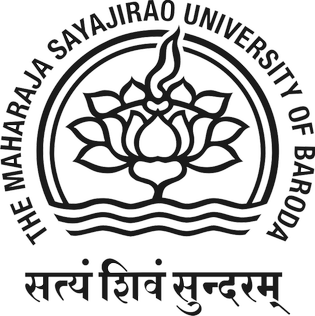
The University of California, San Francisco (UCSF) is a public research university in San Francisco, California. It is part of the University of California system and it is dedicated entirely to health science. It is a major center of medical and biological research and teaching.

Heidelberg University, officially the Ruprecht Karl University of Heidelberg, is a public research university in Heidelberg, Baden-Württemberg, Germany. Founded in 1386 on instruction of Pope Urban VI, Heidelberg is Germany's oldest university and one of the world's oldest surviving universities. It was the third university established in the Holy Roman Empire.

The Salk Institute for Biological Studies is a scientific research institute located in the La Jolla community of San Diego, California on the Pacific coast. The independent, non-profit institute was founded in 1960 by Jonas Salk, the developer of the polio vaccine; among the founding consultants were Jacob Bronowski and Francis Crick. Construction of the research facilities began in spring of 1962. The Salk Institute consistently ranks among the top institutions in the US in terms of research output and quality in the life sciences. In 2004, the Times Higher Education Supplement ranked Salk as the world's top biomedicine research institute, and in 2009 it was ranked number one globally by ScienceWatch in the neuroscience and behavior areas.

The Maharaja Sayajirao University of Baroda, formerly Baroda College is a public university in the city of Vadodara/Baroda, in Gujarat state, India. Originally established as a college in 1881, it became a university in 1949 after the independence of the country. It was later renamed after its benefactor Maharaja Sayajirao Gaekwad III, the former ruler of Baroda State.

The Miguel Hernández University of Elche, is a Spanish Public University, open to the world, offering education, research and services facilitating the comprehensive development of its students. It is located in the province of Alicante and was established in 1996. Its name commemorates the Spanish poet Miguel Hernández.
The Gottfried Wilhelm Leibniz Prize, in short Leibniz Prize, is awarded by the German Research Foundation to "exceptional scientists and academics for their outstanding achievements in the field of research". Since 1986, up to ten prizes are awarded annually to individuals or research groups working at a research institution in Germany or at a German research institution abroad. It is considered the most important research award in Germany.
Shahrekord University is located at the center of Chaharmahal and Bakhtiari Province.
The Max Planck Institute of Neurobiology is a research institute of the Max Planck Society located in Martinsried, a suburb of Munich in Germany. Research centers on the basic mechanisms and functions of the developing and adult nervous system. Main focus areas include the mechanisms of information processing and storage. It is one of 80 institutes in the Max Planck Society.

The University of Veterinary and Animal Sciences (UVAS), originally known as Lahore Veterinary College, is a public university located in Lahore, Punjab, Pakistan. It is accredited by the Pakistan Veterinary Medical Council (PVMC). It has additional teaching campuses in rural areas of the Punjab, Pattoki and Jhang.

The Kaohsiung Medical University is a private university located in Sanmin District, Kaohsiung, Taiwan.

The College of Biological Sciences (CBS) is one of seven freshman-admitting colleges at the University of Minnesota. Established in 1869 as the College of Sciences, the College of Biological Sciences is now located on both the Minneapolis Campus and the St. Paul Campus. CBS is a college that focuses its undergraduate and graduate attention towards research. The dean is Valery E. Forbes. The Associate Dean for Graduate Education is Carrie Wilmot, the Associate Dean for Undergraduate Education is John Ward, the Associate Dean for Research is David Greenstein, and the Associate Dean for Faculty is Marlene Zuk.

The College of Sciences at the University of Texas at San Antonio is a college in research and science education. The college hosts more than 5000 students enrolled in fifteen undergraduate and sixteen graduate programs. The seven departments employ 286 tenure and non-tenure track faculty members. Students are exposed to collaboration through programs with local external research institutions including UT Health Science Center, Southwest Research Institute and the Southwest Foundation for Biomedical Research.

The Centre for Neuroscience and Cell Biology (CNC) is a nonprofit research institute founded in 1990, aiming to foster research in biomedicine and biotechnology and multidisciplinary graduate teaching at the University of Coimbra. CNC was the first established “Laboratório Associado” in Portugal, and it has steadily increased the scope of scientific competences over the years, with a strong focus on the exploitation of the fundamental mechanisms of ageing and brain diseases.
The School of Biological Sciences is a School within the Faculty Biology, Medicine and Health at The University of Manchester. Biology at University of Manchester and its precursor institutions has gone through a number of reorganizations, the latest of which was the change from a Faculty of Life Sciences to the current School.
The Faculty of Behavioural Sciences and Empirical Cultural Studies is one of twelve faculties at the University of Heidelberg. It comprises the Institute of Psychology, the Institute of Social and Cultural Anthropology, the Department of Education, the Institute of Sport and Sport Science, and the Institute of Gerontology. The faculty is headed by a dean. From 2012–2014, Professor Dr. Klaus Fiedler is in charge.
The Faculty of Chemistry and Earth Sciences is one of twelve faculties at the University of Heidelberg. It comprises the Institute of Inorganic Chemistry, Institute of Organic Chemistry, Institute of Physical Chemistry, Institute of Geography, Institute of Geology and Paleontology, Institute of Mineralogy, and the Institute of Environmental Geochemistry. Chemistry was established as a separate discipline at the University of Heidelberg in 1817 with Leopold Gmelin being appointed ordinary professor of chemistry and medicine. 1895 is considered to be the date of foundation of Geography at the University of Heidelberg as it was from this year on that lectures in physical and mathematical geography were held on a regular basis. In 1899 the first professorship in geography was established, filled by Alfred Hettner.

Faculty of Biology of the Belarusian State University was founded in 1931. It is a major biology research and teaching establishment in the country, which includes nine Departments and nine Research Laboratories. The Dean is Vadim V. Demidchyk, Docent, Doctor of Sciences

The La Trobe Institute for Molecular Science (LIMS) is an Australian institute based at La Trobe University in Melbourne. It contains research groups in life sciences, physical sciences, and applied sciences (pharmacy) and teaches undergraduate and graduate courses in these areas through the School of Molecular Sciences. Established in 2009, the Institute has been led by Professor Andrew Hill since 2017.
Chinmoy Sankar Dey is an Indian molecular biologist and a professor at Kusuma School of Biological Sciences of the Indian Institute of Technology, Delhi. Known for his research on insulin resistance, Dey's is a J. C. Bose National Fellow of the Department of Science and Technology and an elected fellow of the National Academy of Sciences, India and the Indian National Science Academy. The Council of Scientific and Industrial Research, the apex agency of the Government of India for scientific research, awarded him the Shanti Swarup Bhatnagar Prize for Science and Technology, one of the highest Indian science awards for his contributions to Medical Sciences in 2003. He is also a recipient of the National Bioscience Award for Career Development of the Department of Biotechnology.

The Archives of Biological Sciences is a multidisciplinary journal that covers original research in a wide range of subjects in life science, including biology, ecology, human biology and biomedical research.













